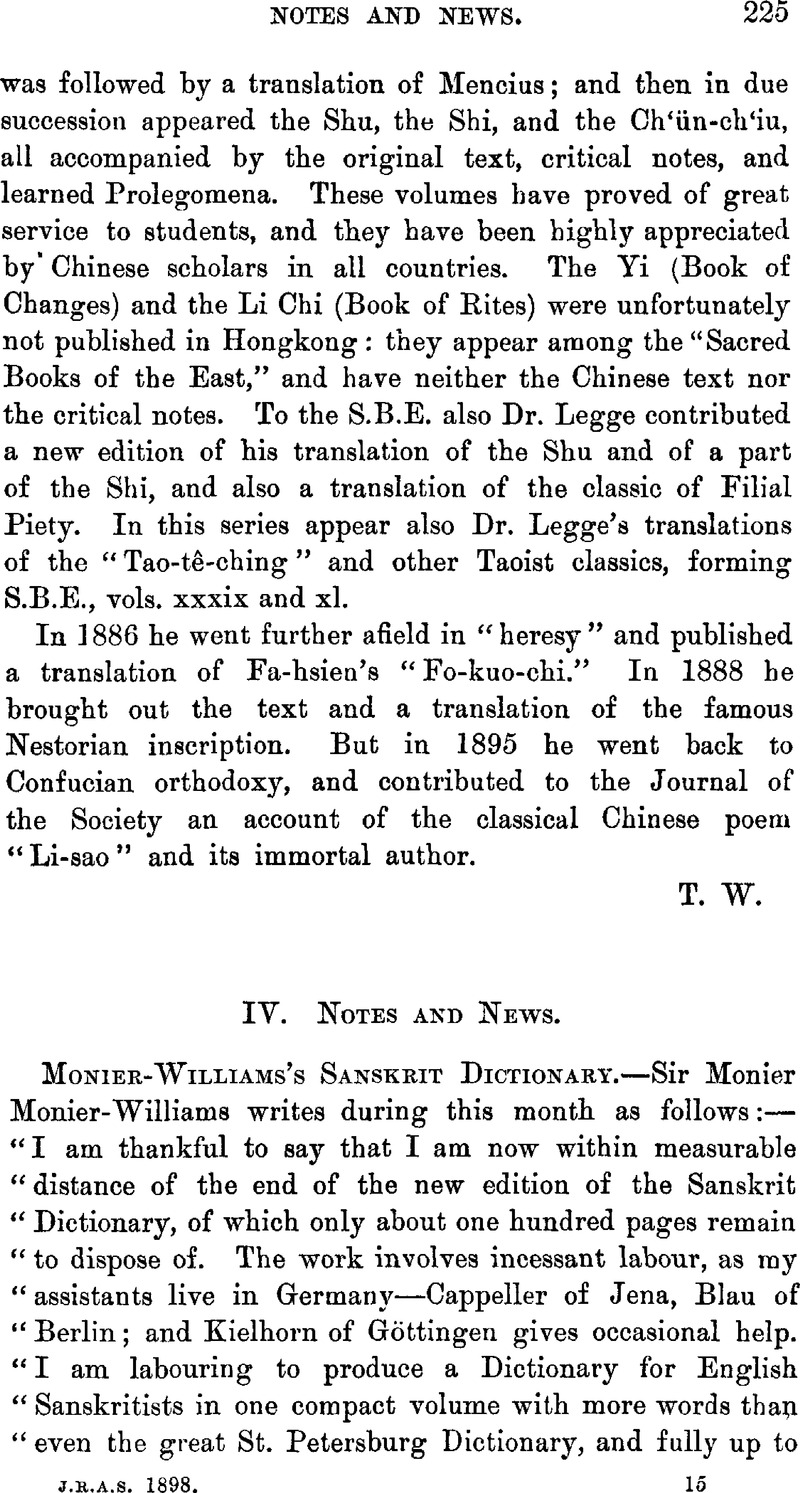No CrossRef data available.
Article contents
IV. Notes and News
Published online by Cambridge University Press: 15 March 2011
Abstract

- Type
- Notes of the Quarter
- Information
- Copyright
- Copyright © The Royal Asiatic Society 1898
References
page 229 note 1 The British Museum possesses (Add. 26,358 B) a copy of the verse portions of this play.
page 229 note 2 Swing-celebrations (i.e. feasts at which images were put in swings) were held in the month Phālguna (February–March) in Eastern India in honour of Vishnu (Mitra, Raj, “Notices,” i. p. 235Google Scholar; vi. 209).
page 229 note 3 Tribhuvanapala was also the name of Kumārapāla's father, who, however, never reigned.
page 230 note 1 Reft, in Aufrecht, Cat. Catt., i. 195, 749.
page 230 note 2 See Dr. Biihler's Table at Ind. Ant., vi, p. 213.
page 230 note 3 B.M. Ur. 3,360 B is a fragment of this work.
page 231 note 1 Also called in this play, metri gratia, Haribhrama (twice) and Harivarman. Thus, with the forms given in Ep. Ind., ii. 230, there are no less than six names for one king.
page 231 note 2 Ep. Ind., ii. 228; Ind. Ant., xix. 26.
page 231 note 3 This is a most valuable work. But why does Dr. Peterson hide his light under a buahel? The book was published as long ago as 1892, and “for presentation rather than sale”; and yet I think it probable that unless I had lighted on its title a few months ago in the preface to Catalogns Catalogorum, pt. ii., and had called the attention of several library authorities to it, not one of the leading Oriental Libraries (much less private scholars) of London would now possess a copy.
page 231 note 4 So our MS.
page 232 note 1 Now Or. 3567 A in the Museum Collection.
page 232 note 2 The Danḍaviveka, apud Rāj. Mitra, “Notices,” No. 1,910.
page 232 note 3 Possihly, however, not immediate successor. Harasimha's elder brother, Devasimha, may have reigned. (Ind. Ant., xiv. 187, note 20.)


